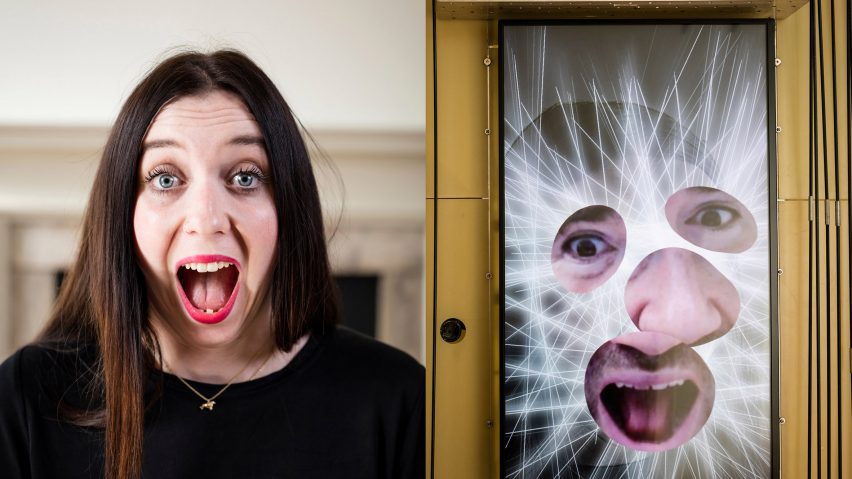
Cooper Hewitt reveals sinister side of facial recognition tech at London Design Biennale
Digital artists R Luke DuBois and Zach Lieberman have both created installations to reveal the primitive nature of facial-recognition technology that is used by organisations all over the USA.
Cooper Hewitt, the Smithsonian Design Museum, commissioned both artworks for its London Design Biennale installation Face Values, which represented the USA.
They are described by Cooper Hewitt director Caroline Bauman as "a provocative design response to the social challenges presented by facial-detection technology".
Both invite visitors to sit in front of a camera and respond to instructions, while a computers makes judgments about their appearance and emotional state.
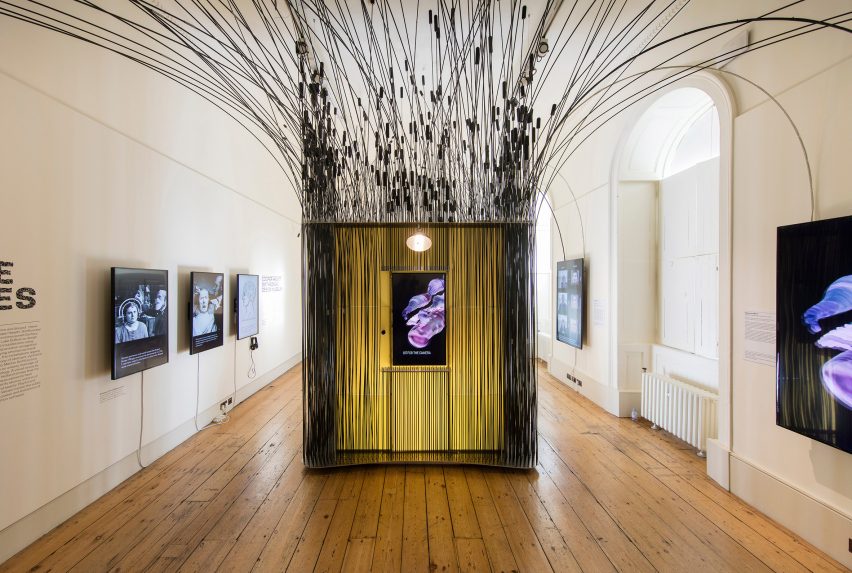
In Expression Portrait, by R Luke DuBois, participants are asked to perform a particular emotion, like happiness or anger, for 30 seconds while the computer analyses their facial features. A voiceover then announces which emotion their expression most resembles, according to its data, as well as deducing the sitter's age, gender and race.
The fact that the computer's impression often doesn't align with reality is just part of the work.
"We need a huge push in media literacy around the ways in which artificial intelligence is deployed in our everyday lives, both in general and with image recognition in particular," DuBois told Dezeen.
"The technology that makes your life easier in one instance – automatically tagging your friends on Facebook, for example – can easily be refactored for something much more sinister, determining whether you get a ticket or a warning at a traffic stop, setting your premium on your health insurance, determining your suitableness for employment, determining the odds that you are a risk to society, deciding whether you 'belong', simply based on how you look."
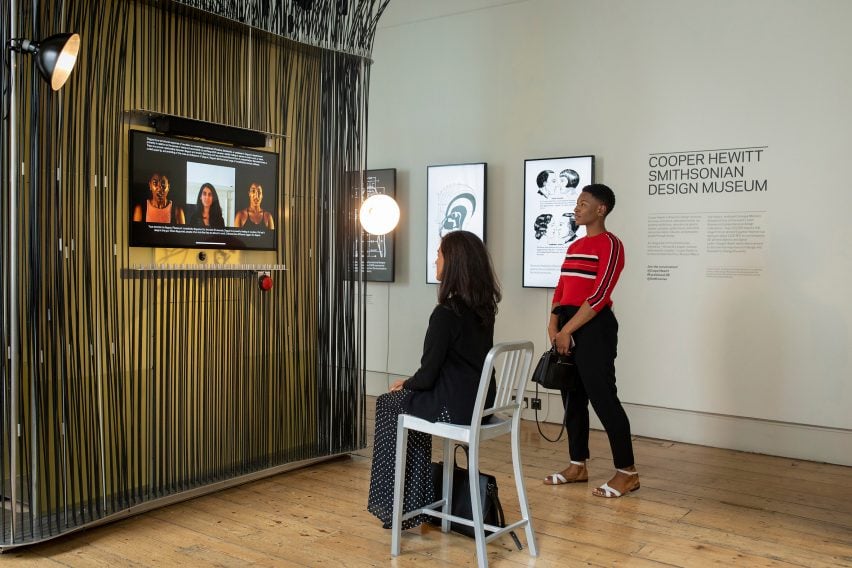
Face Values comes at a time when Facebook is under criticism for the facial recognition feature it continues to apply to photos, arguably without obtaining proper consent from its subjects, and soon after the Cambridge Analytica scandal that raised awareness about third-party access to the company's data.
This is also a year when a civil rights group protested Amazon's supply of face-matching service Rekognition to police, while China's surveillance systems have been documented to include sunglasses that identify the person in front of you.
Zach Lieberman – whose work, Expression Mirror, creates a composite portrait of the sitter using the features of previous visitors who have evinced the same feeling – said that privacy issues are heightened when it comes to faces.
"Face data is intensely personal since it is one of the main ways we express who we are as individuals," Lieberman told Dezeen.
"This technology is often being pushed by governments and large tech companies, which may not be considering the ethical implications of these systems."
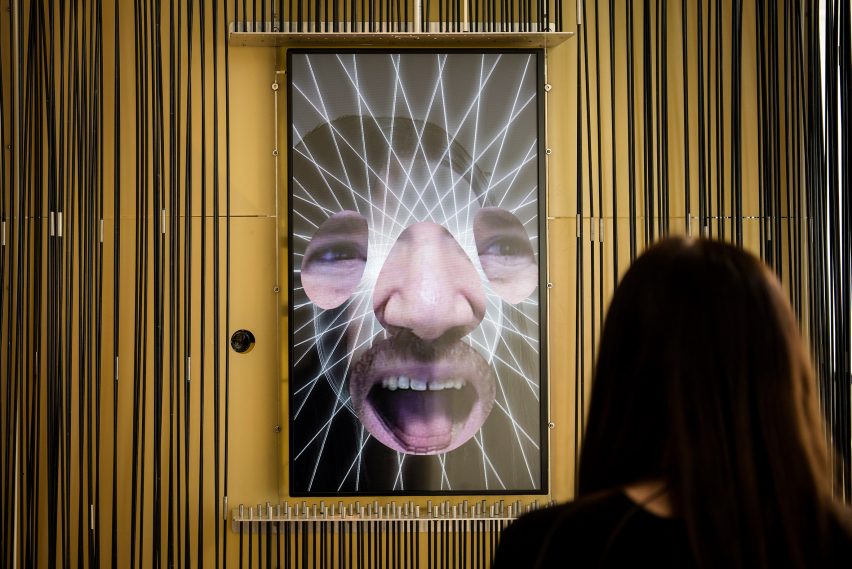
Lieberman's artwork identifies the sitter's facial features in a similar way as the face filters that add embellishment to selfies on Snapchat or Instagram, or the Face ID that unlocks iPhones.
His system tracks muscle movements at 68 points on the face, including some grouped as "inner brow raiser", "nose wrinkler", "lip tightener" and "dimpler". The positions of these suggest whether the sitter is angry, disgusted, afraid, happy, sad, surprised or neutral.
"Computers can detect emotional states in a very primitive way," said Lieberman. "There's a lot of subtlety and nuance in emotion. For example, the difference between anger and disgust can be really minimal."
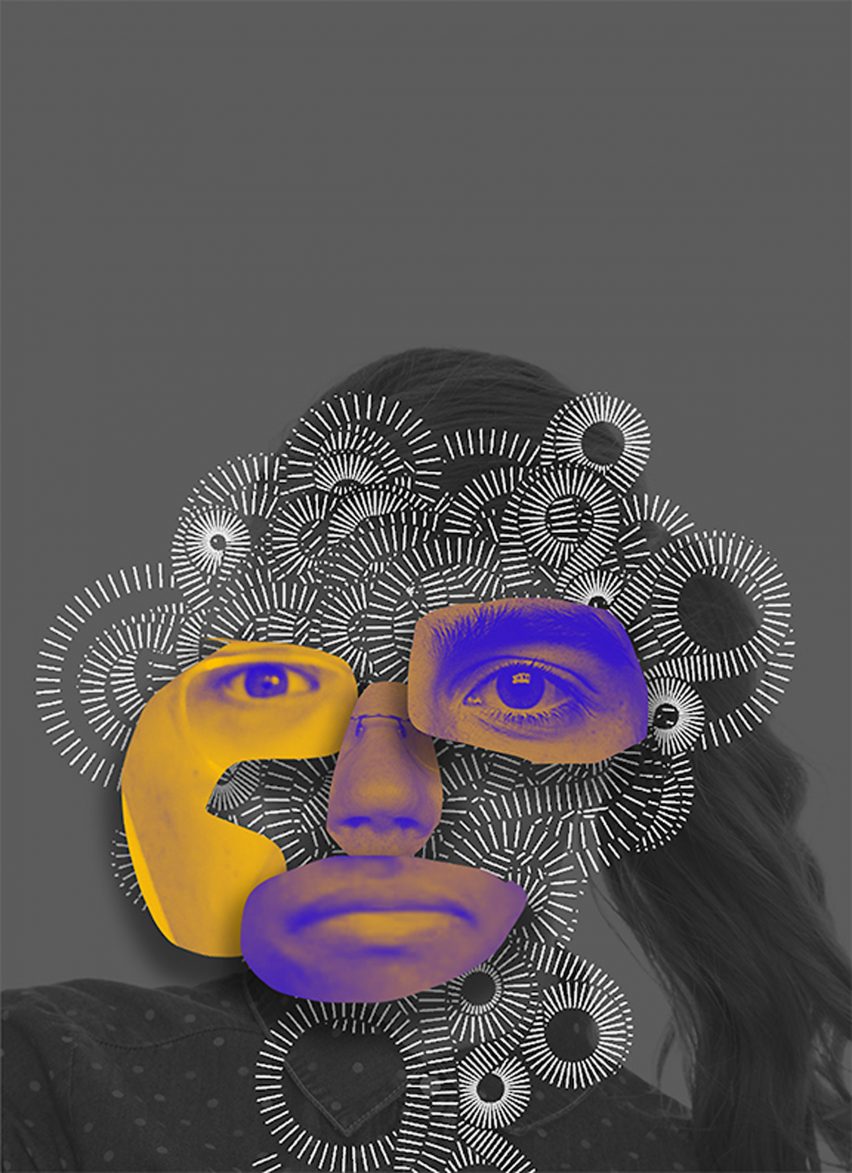
For DuBois, the fact that computers will often guess emotions wrongly is an example of how bias can be encoded in seemingly neutral algorithms.
"Emotion is complex, idiosyncratic, and culturally coded – to say that open eyes and raised corners of the mouth implies happiness is a gross oversimplification," said DuBois. "Yet machine learning technology will often conclude just that, in manners akin to the worst stereotypes that came along with photography and the pseudoscience of phrenology in the 19th century."
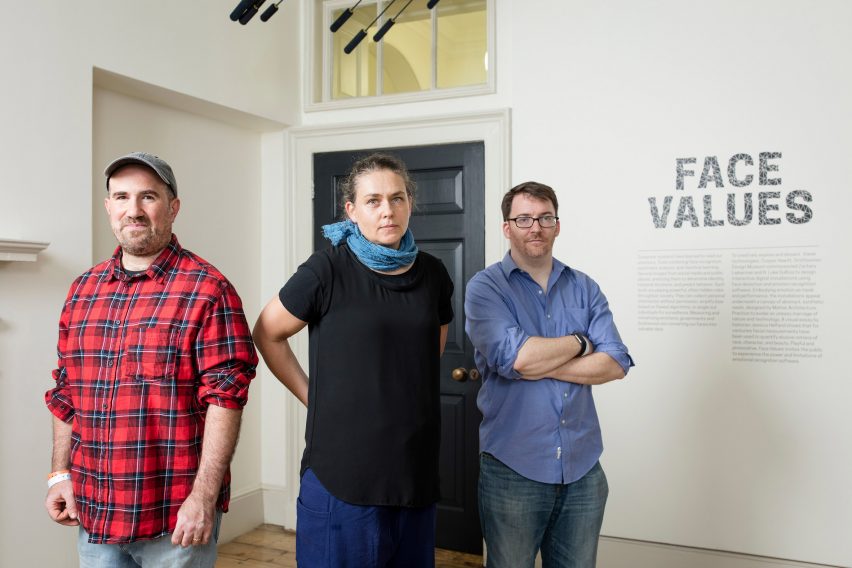
Face Values won the Emotional States Medal at the London Design Biennale for the "most inspiring" interpretation of the 2018 theme.
It presented the two artworks within an environment of metallic reeds – reminiscent of optical – designed by Matter Architecture Practice. They were accompanied by a visual essay by designer and historian Jessica Helfand examining various ways scientists, criminologists and beauty experts have tried to quantify the human face.
The London Design Biennale took place at Somerset House between 4 and 23 September. Among its other installations was a condensation wall from Latvia and a greenhouse of the future from The Netherlands.